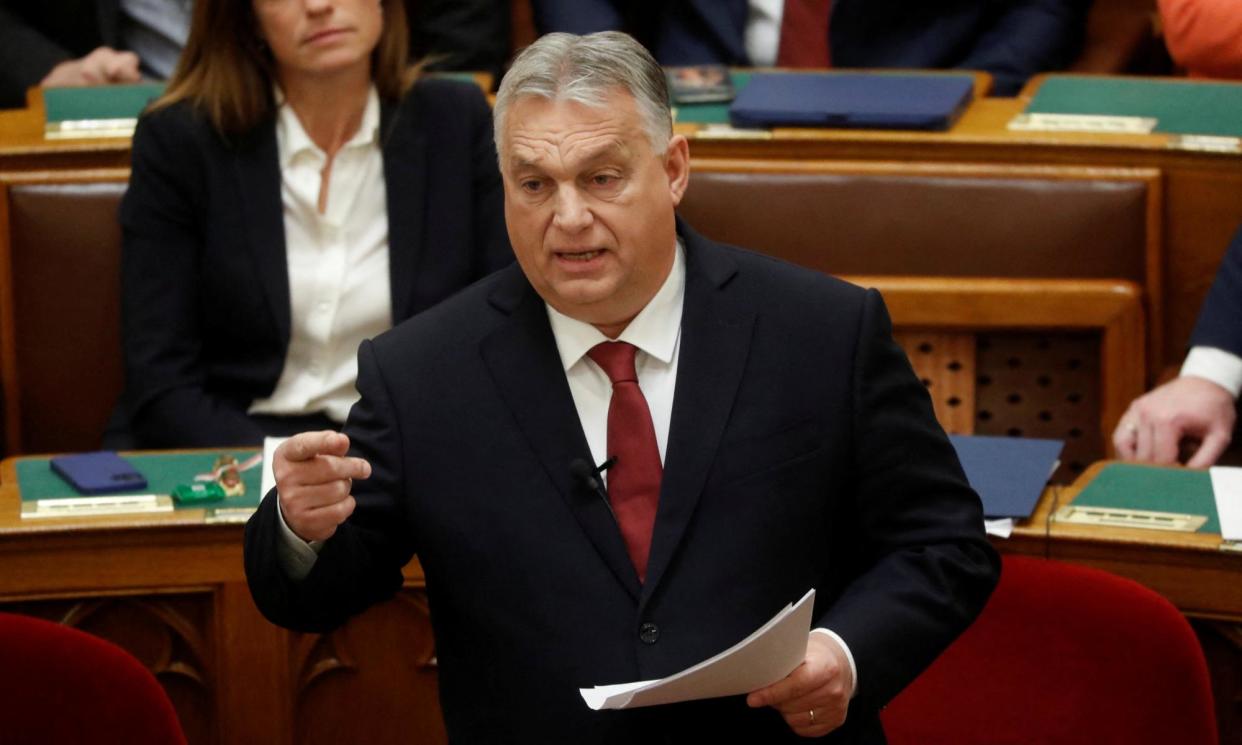Crackdown on ‘foreign interventions’ decried by Hungarian media

Ten independent Hungarian media outlets have issued a joint warning that a new law is “capable of severely restricting the freedom of the press”.
The media organisations, which range from small investigative outlets to popular online news portals, said that a law approved by the Hungarian parliament on Tuesday could make it “difficult or even impossible for independent newsrooms, journalists and media companies to operate”.
The Hungarian prime minister, Viktor Orbán, has claimed that western governments and individuals are funding and directing his opponents. In recent weeks, the Hungarian government intensified its domestic messaging on the claim that foreign forces were meddling in Hungarian public life and that stricter rules were needed to protect the country’s sovereignty.
The law approved this week creates a sovereignty protection office that has broad powers to investigate anyone active in public life.
A Hungarian government spokesperson said the office would “function autonomously with an independent budget, focusing on analysis, evaluation and investigation to safeguard constitutional identity by scrutinising foreign interventions in Hungary’s democratic and decision-making processes”.
Celebrating the law’s passage, Orbán wrote on social media: “Hungary belongs to the Hungarians! We won’t let Hungary’s future be decided abroad!”
But Hungarian civil society groups and media organisations say the true aim of the legislation is not accountability, but to intimidate and silence critics. “The so-called Sovereignty Protection Authority will be an arbitrarily appointed body with unlimited powers, operating without any oversight,” the 10 media organisations said in their statement.
“This office will have the means to threaten and harass the individuals and organisations it targets,” they said, vowing to continue their work.
The media groups said the law “does not serve the information security of our society; on the contrary, it is meant to directly undermine it with its threat to free media and democratic debate in general”.
Ahead of the law’s adoption, a large group of Hungarian civil society groups also raised concerns, arguing that the legislation was unconstitutional and designed to produce a chilling effect.
The NGOs said: “A country where people are intimidated from representing their own interests is not a democracy. Where citizens are accused of serving foreign interests if they speak their minds on public affairs, there is no freedom.”
The law has also raised worries outside Hungary.
On Wednesday, the International Press Institute said it “condemns [the] passing of Sovereignty Protection Act by the Orbán [government] without proper public consultation and calls for an EU challenge against the law”.
The leaders of four major political groups in the European parliament also expressed concern.
In a letter to the European Commission, group leaders from the centre-right European People’s party, Socialists and Democrats, Renew Europe and the Greens wrote that the new sovereignty protection office “risks to be used to further silence opposition parties, NGOs and other government critics”.

 Yahoo News
Yahoo News 
